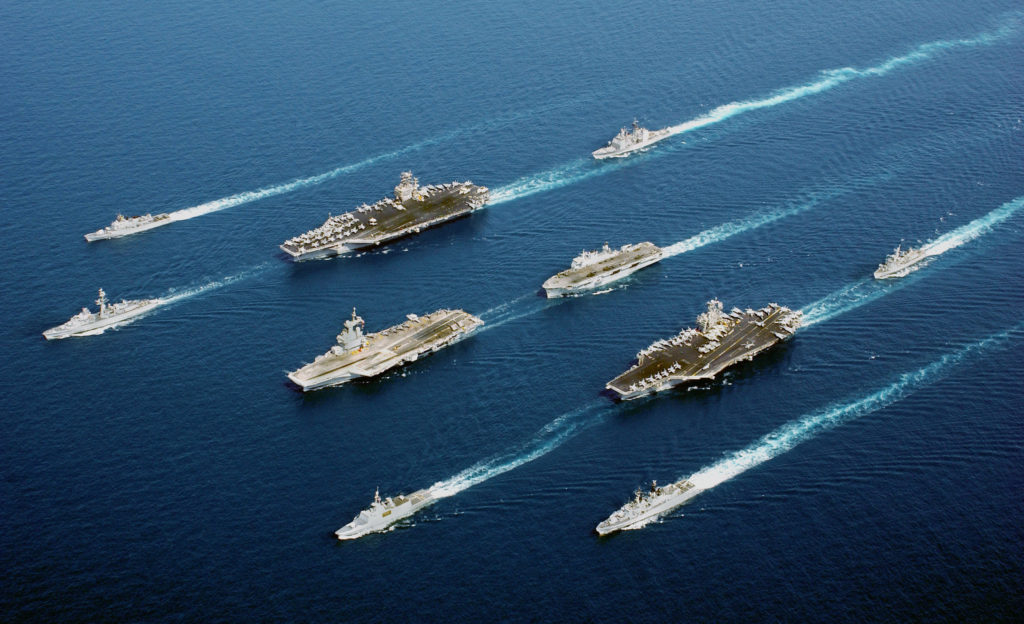Why aren’t you concerned? Why do we not see more stories about the real possibility of nuclear war with two statesmen who need war to distract from their own political failures and personal pathologies?
Nuclear War is a distinct possibility
While American media hyperventilate on Trump tweets and deflections, the real possibility of nuclear war is seldom discussed. But South Korea is worried.
The United States ordered an Aircraft carrier fleet to the Sea of Japan. Now North Korea is threatening to sink U.S aircraft carrier. The US biggest submarine arrived in South Korea for an “exercise.”
If war breaks out on the Korean Peninsula, thousands of American soldiers will die and millions of South Koreans, in Seoul and elsewhere which are in close reach of North Korea. And the silence of our media is deafening.
Why are both the media and many activists so silent? I read an article this morning that may have a clue. Dr. Lawrence Wittner, Professor of History emeritus at SUNY/Albany and author of Confronting the Bomb wrote a piece titled “Why Is There So Little Popular Protest Against Today’s Threats of Nuclear War?” I think his answer is just about right but sad.
So why is there so little public protest today?
One factor is certainly the public’s preoccupation with other important issues, among them climate change, immigration, terrorism, criminal justice, civil liberties, and economic inequality.
Another appears to be a sense of fatalism. Many people believe that Kim and Trump are too irrational to respond to reason and too autocratic to give way to public pressure.
Yet another factor is the belief of Americans and Europeans that their countries are safe from a North Korean attack. Yes, many people will die in a new Korean War, especially one fought with nuclear weapons, but they will be “only” Koreans.
In addition, many people credit the absence of nuclear war since 1945 to nuclear deterrence. Thus, they assume that nuclear-armed nations will not fight a nuclear war among themselves.
Finally―and perhaps most significantly―people are reluctant to think about nuclear war. After all, it means death and destruction at an unbearable level of horror. Therefore, it’s much easier to simply forget about it.
He ends his article with a warning.
It would be a terrible thing if it takes a disastrous nuclear war between the United States and North Korea to convince people that nuclear war is simply unacceptable. The atomic bombing of Hiroshima and Nagasaki should already have convinced us of that.
Indeed it would.

